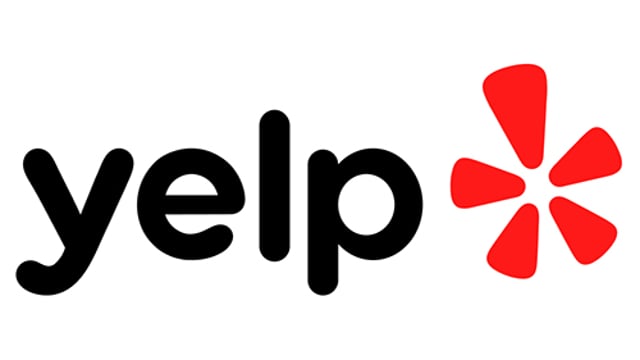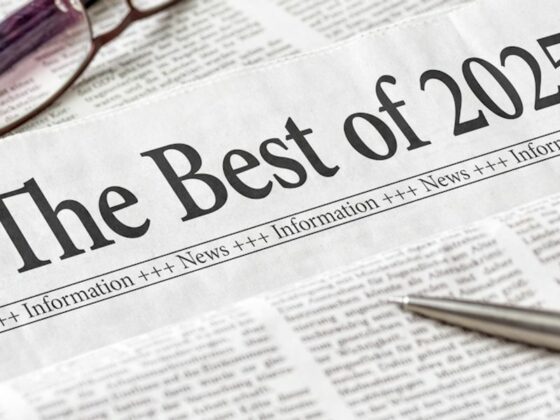Maintenance in the hospitality industry involves the upkeep of facilities, technology, equipment and other important assets. This can include everything from plumbing systems to elevators and televisions.
The importance of maintenance is impossible to overstate because it is necessary to keep things running smoothly. If issues occur and things stop working, you can expect this to negatively impact or entirely ruin the guest experience.
In this article, you will find out more about the value of hospitality maintenance and access some best practices and tips to ensure your hospitality business remains fully operational.
Table of Contents:
What is Maintenance in the Hospitality Industry?
Maintenance in the hospitality industry refers to the various activities associated with keeping a hospitality business in working order. It consists of the upkeep and repair of equipment, technology other key components.
The precise nature of maintenance in hospitality will depend on the type of business in question. For instance, hotel maintenance may include the upkeep of in-room technology, heating and air conditioning systems and elevators, while restaurant maintenance will include things like the upkeep of cooking appliances and food ordering systems.
Hospitality maintenance can also take several forms, like routine maintenance work, which is carried out regularly, or preventative maintenance work, which aims to prevent problems from occurring in the first place. While maintenance is typically the responsibility of a dedicated maintenance team, other staff may carry out basic maintenance tasks.
Why is Maintenance Important in Hospitality?
Hospitality maintenance is important because a business needs to make sure its key assets are always in full working order. Any breakdown of technology or damage to utilities or systems can impact day-to-day operations.
Ultimately, any hospitality business succeeds or fails based on the extent to which it can keep guests happy. If you have an effective maintenance department and a robust maintenance strategy, you can avoid as many unnecessary problems as possible and prevent guests from encountering major issues during their time with you.
Maintenance is also important for productivity and for keeping revenue coming in. If a hotel elevator breaks and restricts access to certain rooms, these rooms may not be able to be sold. Likewise, in the restaurant industry, if appliances or equipment fail, meals may not be able to be prepared and sold to customers.
The Main Types of Hospitality Maintenance
Maintenance in hospitality can be broadly divided into three main maintenance types, which are as follows:
1. Preventative Maintenance
Preventative maintenance is an approach that aims to prevent major issues from occurring. In essence, it can be described as the act of fixing things before they are broken.
One of the major benefits of preventative maintenance is it minimizes any downtime for systems, technology or your business as a whole. By stopping problems from occurring in the first place, you optimize the guest experience.
In some ways, routine maintenance and preventative maintenance can overlap, making it easier to achieve both.
Video: What is Preventive Maintenance the Complete Guide
2. Routine Maintenance
Routine maintenance in the hospitality industry involves carrying out basic maintenance tasks on a regular basis. This kind of work could be carried out daily, weekly, monthly, or at some other interval.
Some of this work might include regular inspections of equipment, or safety checks. Other tasks involve regularly cleaning equipment or preparing it for use by other members of staff.
Some routine maintenance work is also a legal requirement, ensuring compliance with safety regulations.
3. Reactive Maintenance
Reactive maintenance involves responding to situations that occur in a hospitality business. It typically consists of fixing problems after they have occurred, and these issues can vary significantly.
Some examples of reactive maintenance would include fixing a faulty automatic door, or repairing a broken computer system. Reactive maintenance is about responding as quickly as possible to reported issues.
Yet, reactive maintenance is also the least efficient form of maintenance, because it means a problem already exists.
Top Tips and Maintenance Practices in the Hospitality Industry
In the following sections, you can access some best practices and top tips for hospitality maintenance.
1. Be Clear On Your Standard Operating Procedures
Standard operating procedures are instructions for carrying out tasks related to maintenance in hospitality. These instructions are presented as a step-by-step guide, explaining what to do and when.
Having standard operating procedures in place can be beneficial for ensuring the right steps are taken. They can also prevent crucial tasks from being overlooked or forgotten about, which can optimize maintenance efforts.
By sticking to these standard operating procedures, your maintenance department can also maximize the amount of work they are able to do. This, in turn, can allow for more preventative maintenance work and fewer problems.
Video: Maintenance Guidelines: Hospitality Introduction
2. Prioritize Communication Throughout Your Business
Communication is essential to your hospitality maintenance efforts. However, this means more than just good communication amongst maintenance staff – you also need different departments to communicate with each other.
The effectiveness of communication can have a huge bearing on maintenance outcomes. When communication is effective, it helps to ensure maintenance staff learn about problems quickly and can take swift action.
Delays in communication or confusion caused by poor communication can be immensely detrimental, especially over time. When communication is clear and efficient, work can be carried out in a timely fashion.
3. Place a Strong Emphasis on Preventative Maintenance
Preventative maintenance should be a top priority for businesses in the hotel industry and all other sectors of hospitality. Take care of equipment, carry out checks regularly, and take sensible precautions.
Preventative maintenance is important because, as the expression goes, “prevention is better than cure“. The more problems you can prevent from happening, the easier your maintenance roles will become.
It is almost always harder to fix a problem than it is to stop the problem from occurring in the first place.
4. Create a Maintenance Schedule or Calendar
While maintenance work can be unpredictable, many of the tasks can also be pre-planned. This works best if you create a schedule or calendar, which you can then use to assign individual tasks to specific employees.
A schedule is important for maintenance in hospitality because it helps your team to operate efficiently. When tasks are pre-assigned, employees know what to do, and delays are kept to a minimum.
Although there will be times when teams need to deviate from the schedule to address the most serious issues, a basic calendar helps to organize team efforts and avoid situations where some staff are overworked.
5. Make Sure You Have Good Stock Control
Stock control involves ensuring you have an appropriate number of items available at any given time. To offer just one example, for maintenance in hospitality, you are going to need a supply of replacement light bulbs.
Using this example, we can highlight the value of stock control. At any given time, you need enough spare light bulbs available to replace blown bulbs, but not so many that they are taking up unnecessary storage space.
Stock control involves tracking how many of each item you have available. This information needs to be continually updated, so you know when to place a new order, or when to call a temporary halt to future orders.
6. Acquire Enterprise Asset Management Software
Enterprise asset management software is invaluable for hospitality management, enabling you to keep inventory information, asset tracking, inventory data and order prioritization lists in one place.
This software is important for centralizing much of the information that will assist with effective day-to-day maintenance work. It also allows you to set reminders for inspections, preventative maintenance work, and more.
By using this software, you can avoid stock shortages, missed inspections and compliance issues. Centralizing data in a single location can also help with efficiency and makes backing up the data easier too.
7. Keep Maintenance Logs Up-to-Date At All Times
Maintenance logs are a way of keeping a record of all of the hospitality maintenance work that has been carried out. The log will explain who did what tasks, as well as explain when this work was carried out.
These logs are essential for compliance and also allow maintenance staff to understand any previous work that has been done on equipment, appliances or hospitality technology trends. They provide a degree of transparency too.
Some businesses keep maintenance logs in a book, but one of the biggest hospitality trends related to maintenance has been the transition to digital logs. This can be achieved with enterprise asset management software or maintenance management software. Cloud-based solutions can be especially useful for providing access to data at any time.
8. Invest in Communication Solutions
Communication solutions can include everything from software solutions to phones, tablets, pagers, and walkie-talkies. The better the communication tools available to maintenance teams, the better their communication will be.
As previously explained, communication is critical for success, and technology solutions can greatly help. Ideally, you should try to provide options for both verbal and non-verbal communication.
You will also need to make sure your staff are trained to make effective use of any new tools you add.
9. Recruit the Best Maintenance Staff Possible
Success with maintenance in hospitality is ultimately all about the people working in your department. If you are able to recruit skilled maintenance workers, you are likely to achieve better outcomes.
A great recruitment strategy is of paramount importance, because maintenance workers need to know how to operate. It is equally important to recruit people who are a good fit for your organization.
Try to avoid situations where you need to rush hiring decisions. Take your time and provide the right financial compensation to secure the best people for the job, focusing on people who are knowledgeable and motivated.
10. Be Willing to Outsource Some Maintenance Tasks
Finally, while it is a good idea to have a robust internal maintenance department, there may be a need to outsource from time to time. You should embrace outsourcing, but use it sensibly and only when it makes sense.
Outsourcing can be especially useful for situations where highly specific skills are required for maintenance work. It is often far cheaper to outsource a task than to train existing staff to perform the same task.
It is worth noting that when you outsource, you only pay for the work that is done and will not have to worry about things like work benefits, holiday pay and costs associated with recruitment.
The Benefits of Effective Hospitality Maintenance Practices
In the following sections, you can explore the key benefits associated with a strong maintenance department.

1. Improve the Guest Experience
Regular maintenance helps to ensure guests enjoy a positive experience, free from any serious issues. If you do not regularly inspect equipment and assets, you increase the risk of problems occurring.
Optimizing the guest experience is essential for the long-term success of any hospitality business. Visits that go smoothly are more likely to result in satisfied customers, who recommend your business to other people.
Failing to see minor defects or issues can lead to worse problems later on, which can have a bigger impact on the guest experience. Regular checks can help to ensure guests enjoy a pleasant, frictionless stay.
2. Keep Your Costs to a Minimum
One of the biggest benefits associated with a high-quality maintenance strategy is reduced costs. By taking the time to carry out checks and inspections, you can prevent expensive fixes and replacements later on.
This is important because maintenance costs for serious issues can quickly mount up. It is much more cost-effective to get your preventative maintenance strategy right than it is to repair damage resulting from a poor strategy.
As an added benefit, preventative maintenance can ensure you are working with more predictable budgets.
3. Comply With Rules and Regulations
Any hospitality business needs to comply with regulations in areas like safety and security. By carrying out routine maintenance work, you can help to ensure your business complies with all rules and laws.
Compliance is critical because you could face penalties if you fail to meet your obligations. Rules and regulations are also designed to keep people safe, which applies to your guests and employees.
Continuous compliance with all regulations, thanks to effective maintenance efforts, can also protect your business’ reputation. Conversely, if you fail to comply, you could experience lasting reputational harm.
4. Boost Your Business Sustainability
Maintenance efforts have the potential to boost your overall sustainability levels. By carrying out regular checks and replacing parts intelligently, you may be able to improve efficiency and reduce your carbon footprint.
Sustainability has emerged as one of the major battlegrounds for hospitality businesses. An ever-growing number of customers want to give their time and money to brands that behave ethically and responsibly.
It may be beneficial in certain circumstances to replace older equipment with newer, more energy-efficient solutions.
5. Enhance Safety and Security
Hospitality maintenance work can help to improve the safety and security levels of your business. For instance, ensuring that doors, windows, alarms and security systems are fully functional helps to keep people safe.
This is important for your guests, but also for your own employees. Both groups deserve to feel safe, comfortable and secure on your premises and simple preventative and routine maintenance can deliver this for them.
Failing to adopt the best practices can have the opposite effect, putting people at risk or making them feel less safe.
6. Improve Your Technology Performance
Finally, high-quality maintenance in hospitality can improve the performance of various types of hospitality technology. When equipment or technology has even small problems, it can reduce efficiency significantly.
On the scale of an entire hospitality business, multiple very small inefficiencies can quickly add up. By keeping on top of maintenance work, you can help to ensure overall business performance is optimized.
This effect is especially evident in computer systems, communications technology, and HVAC systems.
Preventive Maintenance Measures in the Hospitality Industry
Below, you can read about some of the most common preventative hospitality maintenance measures.
- Guest Rooms: Checking rooms for common issues, including wear and tear on furniture and signs of potential damage to doors, windows, locks, and other key room features.
- Climate Controls: Frequent checking of heating, ventilation, and air conditioning systems, ensuring they are functional, working efficiently, and able to be adjusted by hotel staff and guests.
- Elevators and Doors: Scheduled maintenance work and inspections are performed to ensure automatic doors and elevators are in full working order, for safety compliance, and to prevent small issues from turning into larger problems.
- Kitchen Facilities: Routine inspections and frequent cleaning of kitchen equipment, including cookers, ovens, deep fat fryers, dishwashers, refrigerators, and freezers.
- Plumbing and Electrics: Frequent inspections of pipes, sinks, toilets, baths, showers, and drains. Regular assessment of electrical systems, checking for faults, wiring issues, and energy usage.
- Structural Maintenance: Inspecting the physical building itself, including the roof, walls, floors and stairs. Addressing minor issues early can prevent major structural problems further down the line.
- Safety and Alarms: Regular inspection and testing of all safety equipment, including alarms, fire extinguishers, fire exits, flood defenses and accessibility features, in line with legal obligations.
How to Hire the Best Maintenance Staff
Focus recruitment efforts on hiring the most suitable candidates. This means identifying those with the right qualifications and experience – ideally, experience in hospitality settings, fixing similar equipment to yours.
Your recruitment strategy is a critical component of your wider hospitality maintenance strategy. The people you hire for the job can make or break your entire approach to upkeep and repair.
During interviews, ask candidates to explain how they would deal with specific situations and ask them about the work they have done in the past. You could also use the application process to evaluate written communication skills.
The Importance of Hotel Housekeeping
The hotel housekeeping department works closely with maintenance staff and takes on some important responsibilities. For example, housekeeping teams are in charge of keeping communal areas tidy, cleaning guest rooms, and preparing those rooms for new arrivals. This can include changing bed sheets, replenishing toiletries, and more.
In the “Housekeeping Department in Hotel Businesses: Why Is It So Important?” article, you will be able to read a full overview covering the housekeeping department, its value and the main duties of housekeeping staff.
The Latest Hotel Housekeeping Trends
Aside from carrying out day-to-day duties and coordinating with the maintenance department, housekeeping teams also need to stay up-to-date with the latest trends. Examples of this include triple sheeting for beds, the use of antibacterial coatings, and even the implementation of robotic housekeeping solutions.
In the “Discover The Latest Housekeeping Trends” article, you can read a breakdown of the latest hospitality technology and strategic trends that are shaping housekeeping efforts right now.
Did You Like This Article about Maintenance?
You might also be interested in the following articles:
Hospitality maintenance is an essential part of daily operations, helping to keep the business in working order. When maintenance efforts fail, it can ruin the entire guest experience and harm your reputation. By following the tips and best practices provided, you can improve your chances of keeping guests satisfied.
More Tips to Grow Your Business
Revfine.com is a knowledge platform for the hospitality & travel industry. Professionals use our insights, strategies and actionable tips to get inspired, optimise revenue, innovate processes and improve customer experience. You can find all hotel & hospitality tips in the categories Revenue Management, Marketing & Distribution, Hotel Operations, Staffing & Career, Technology and Software.
This article is written by:
Hi, I am Martijn Barten, founder of Revfine.com. With 20 years of experience in the hospitality industry, I specialize in optimizing revenue by combining revenue management with marketing strategies. I have successfully developed, implemented, and managed revenue management and marketing strategies for individual properties and multi-property portfolios.










